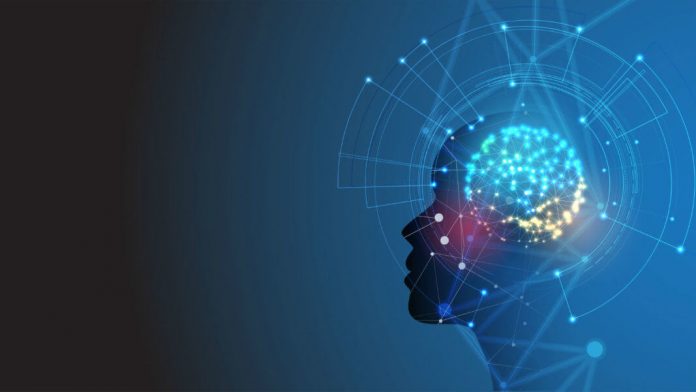This article is written by Kanya Saluja from Institute of Law, Nirma University. The article discusses the role and functions of the Global Partnership on Artificial Intelligence and India joined as a founding member of GPAI.
Table of Contents
Introduction
GPAI is a universal and multistakeholder activity to help and guide the mindful use and improvement of AI, grounded in human rights, consideration, assorted variety, development, and monetary development. To accomplish this objective, the activity will hope to overcome any barrier among hypothesis and practice on AI by supporting front line research and applied undertakings, pilots, and experimentation on AI-related needs.
Global Partnership on Artificial Intelligence
In a joint effort with accomplices and universal associations, GPAI will unite driving experts from industry, common society, and governments, and the scholarly world to team up across four Working Group topics:
1) Responsible AI;
2) Data Governance;
3) The Future of Work; and
4) Innovation and Commercialization.
Basically, for the time being, GPAI’s experts from industry, civil society, governments, and academia will likewise explore how AI can be utilized to more readily react to and recuperate from COVID-19. Nine Slovenian experts will be engaged with the working gathering research related to AI.
GPAI will be upheld by a Secretariat, to be facilitated at the Organisation for Economic Co-operation and Development (OECD) Headquarters in Paris, just as by two Centres of Expertise one each in Montréal and Paris. The Centres will give managerial and research backing to the handy undertakings embraced or surveyed by Working Group experts from different divisions and orders. The Centres will likewise design the yearly GPAI Multistakeholder Experts Group Plenary, the first will be facilitated by Canada in December 2020. The OECD will likewise be a Permanent Observer to the GPAIs overseeing bodies.
GPAI’s founding individuals incorporate Australia, Canada, the European Union, Germany, France, India, Italy, Japan, Mexico, New Zealand, the Republic of Korea, Singapore, Slovenia, the United Kingdom, and the United States of America. GPAI individuals focus on the dependable and human-driven turn of events and utilization of AI in a way predictable with human rights, fundamental opportunities, and our majority rule reckon.
Principles: The OECD Principles shaped the premise of the G20 Principles on AI supported at the Osaka Summit in June 2019.
Significance: The OECD will permit the GPAI to make a solid connection between global arrangement improvement and specialized talk on AI. “AI is a genuinely transformational innovation that could assume a catalyzing job in our reaction to Covid-19 and other worldwide difficulties created and utilized with trust, straightforwardness and responsibility,” OECD Secretary-General Angel Gurría. “The dispatch of GPAI, an activity grounded in the OECD AI Principles, denotes a significant advance toward this objective. The OECD is anticipating building incredible collaborations between front line logical work imagined by GPAI and the OECD’s AI strategy administration.”
Foundation: Resulting from the Canadian and French G7 Presidencies in 2018 and 2019, GPAI was formally proposed by France and Canada at the Biarritz Summit in August 2019. G7 Leaders at that point formally invited the OECD’s eagerness to help their work to propel AI.
Founding Members: Australia, Canada, the European Union, France, Germany, India, Italy, Japan, the Republic of Korea, Mexico, New Zealand, Singapore, Slovenia, the United Kingdom, and the United States.
Global Partnership on Artificial Intelligence’s Governance Bodies: Under the facilitating course of action being still settled the administration body will incorporate:
- Comprising of a Council
- Controlling Committee,
- Secretariat housed at the OECD.
The GPAI Secretariat would likewise liaise with Centres of Expertise in Montréal and Paris.
Online Platform: The OECD likewise works an online stage – the OECD AI Policy Observatory, or OECD.AI – where all players in the AI circle can share bits of knowledge and team up on shaping AI-related strategy. The stage contains information and data on AI patterns and arrangements in around 60 nations and material from accomplices in the scholarly world and the private area.
The Observatory unites work from over the OECD on AI-related estimation and strategy issues and will give a powerful premise to examination and further use by the GPAI.
Functions of GPAI
- Bridge the gap between theory and practice on AI by supporting bleeding-edge research and applied exercises on AI-related needs.
- A model would be taking a gander at how AI could assist social orders with reacting to and recoup from the Covid-19 emergency.
- Unite driving experts from industry, common society, governments, and the scholarly community to direct research and pilot ventures on AI.
- It will at first include four working gatherings concentrated on capable AI, information administration, the fate of work, and development and commercialisation.
What is Artificial Intelligence
As indicated by the father of Artificial Intelligence, John McCarthy, it is “the science and building of making shrewd machines, particularly keen computer programs”. Artificial Intelligence is a method of making a computer, a computer-controlled robot, or a product that can think insightfully, in the comparable way the wise humans think. AI is practised by concentrating on how the human brain thinks, and how humans learn, choose, and work while attempting to take care of an issue, and afterwards utilizing the results of this examination as a premise of creating canny programming and frameworks.
Philosophy of AI
While misusing the intensity of the computer frameworks, the interest of humans, led him to ponder, “Can a machine think and act like humans do?” In this manner, the improvement of AI began with the expectation of making comparative intelligence in machines that we find and respect high in humans.
Goals of AI
To create Expert Systems − The frameworks which display canny conduct, learn, illustrate, explain, and counsel its clients. To Implement Human Intelligence in Machines − Creating frameworks that get, think, learn, and carry on like humans.
What Contributes to AI? Artificial intelligence is science and technology-dependent on orders, for example, Computer Science, Biology, Psychology, Linguistics, Mathematics, and Engineering. A significant push of AI is in the advancement of computer capacities related to human intelligence, for example, thinking, learning, and critical thinking. Out of the accompanying regions, one or various territories can add to manufacture a keen framework.
What the GPAI Aims to Achieve
In a joint effort with accomplices and universal associations, GPAI will unite driving experts from industry, common society, governments, and the scholarly community to team up and advance the mindful development of artificial intelligence. The coordinated effort additionally aims at developing approaches to show how AI can be utilized to more readily react to the present worldwide emergency around COVID-19.
India as of late additionally propelled the National AI Strategy and National AI Portal. Artificial intelligence is likewise being utilized across different segments, for example, instruction, agribusiness, medicinal services, web-based business, fund, broadcast communications, among others with consideration and strengthening of people by enhancing development and advancement.
OECD to host Secretariat of new Global Partnership on Artificial Intelligence
The OECD will have the Secretariat of the new Global Partnership on AI (GPAI), an alliance propelled today that aims at guaranteeing that Artificial Intelligence is utilized mindfully, regarding human rights and equitable qualities. Plans for the OECD’s job as host will be finalised in the coming days.
The GPAI will unite experts from industry, government, common society, and the scholarly community to direct research and pilot ventures on AI. Its target, as set out by founding individuals Australia, Canada, the European Union, France, Germany, India, Italy, Japan, Korea, Mexico, New Zealand, Singapore, Slovenia, the United Kingdom, and the United States, is to overcome any issues among hypothesis and practice on AI strategy. A model would be taking a gander at how AI could assist social orders with reacting to and recoup from the Covid-19 emergency.
Basing its Secretariat at the OECD will permit the GPAI to make a solid connection between universal strategy improvement and specialized talk on AI, exploiting the OECD’s ability on AI strategy and its authority in setting out the primary global standard for dependable AI the OECD Principles on Artificial Intelligence. The OECD Principles shaped the premise of the G20 Principles on AI-supported at the Osaka Summit in June 2019. “The dispatch of GPAI, an activity grounded in the OECD AI Principles, denotes a significant advance toward this objective. The OECD is anticipating building incredible cooperative energies between bleeding edge logical work imagined by GPAI and the OECD’s AI strategy administration.”
Conceived out of the Canadian and French G7 Presidencies in 2018 and 2019, GPAI was authoritatively proposed by France and Canada at the Biarritz Summit in August 2019. G7 Leaders at that point formally invited the OECD’s readiness to help their work to propel AI, in accordance with its Recommendation on AI. The GPAI will at first contain four working gatherings concentrated on capable AI, information administration, the fate of work, and advancement and commercialisation.
Under the facilitating game plan being concluded, GPAI’s administration bodies, comprising a Council and a Steering Committee, would be upheld by a Secretariat housed at the OECD. Likewise, The OECD would be a Permanent Observer of GPAIs overseeing bodies and its experts partake in the working gatherings and entire gatherings. Debut gatherings of OECD are normal in late 2020. The GPAI Secretariat would likewise liaise with Centres of Expertise in Montréal and Paris.
The complementarity of GPAI exercises to OECD work ought to reinforce the proof base on which the OECD’s strategy investigation is created, and the OECD’s meaningful arrangement work will similarly illuminate conversations in the GPAI’s bodies and working gatherings. Facilitating the GPAI Secretariat will fortify the OECD’s capability to scatter and actualize its measures and its approach investigation in zones, for example, information administration, the eventual fate of work, and dispersion and efficiency.
The OECD’s AI Principles received in May 2019 and now upheld by more than 40 nations, including five qualities-based standards for the capable sending of AI and five proposals for universal co-activity and strategy. They offer a guide for planning and running AI frameworks such that puts individuals’ eventual benefits first and guaranteeing that AI framework fashioners and administrators are considered responsible for their legitimate working.
The OECD additionally works on an online stage the OECD AI Policy Observatory or OECD.AI – where all players in the AI circle can share their knowledge and team up on forming AI-related strategy. The stage contains information and data on AI patterns and arrangements in around 60 nations and material from accomplices in the scholarly community and the private area. The Observatory unites work from over the OECD on AI-related estimation and strategy issues and will give a strong premise to investigation and further use by the GPAI.
India as a founding member of GPAI
GPAI is the first body of its sort for advancing better comprehension of the difficulties around Artificial Intelligence utilizing the experience and decent variety of taking a developed nation.
Union Minister for Electronics and IT, Ravi Shankar Prasad tweeted on 21st August, 2020, “Delighted to declare that India has joined the Global Partnership on Artificial Intelligence or #GPAI today as a founding part. This multi-partner worldwide organization will advance capable and human-driven turn of events and utilization of AI. #ResponsibleAI.” The Global Partnership on AI likewise involves Canada, Germany, France, Italy, Japan, Mexico, New Zealand, Republic of Korea, and Singapore among different countries. “By joining GPAI as a founding part, India will effectively partake in the worldwide advancement of Artificial Intelligence, utilizing its experience around the utilization of computerized advances for comprehensive development,” the announcement from the Indian government said.
Conclusion
Thus, India, by joining GPAI as a founding member, will effectively take an interest in the worldwide improvement of Artificial Intelligence, utilizing its experience around the utilization of advanced innovations for comprehensive development.
India additionally declared a National AI Strategy with the Indian Government propelling a first of its kind National AI Portal that unites the best personalities and thoughts alongside assets to handle the subject of artificial intelligence across divisions and ventures. The GPAI will be upheld by a secretariat, which will be facilitated by the Organization for Economic Cooperation and Development (OECD) in Paris, alongside two Centres of Expertise, one in Montreal and another in Paris.
References
- https://in.ambafrance.org/Global-Partnership-on-Artificial-Intelligence
- https://pib.gov.in/PressReleseDetailm.aspx?PRID=1631676
LawSikho has created a telegram group for exchanging legal knowledge, referrals and various opportunities. You can click on this link and join:
 Serato DJ Crack 2025Serato DJ PRO Crack
Serato DJ Crack 2025Serato DJ PRO Crack











 Allow notifications
Allow notifications


